Subject : Master of Arts in Political Science
P. G. Course Syllabus
SEMESTER I
The First Semester will have five papers. All papers are compulsory.
Paper- I Ancient and Mediaeval Western Political Thought
1. Plato Text: Republic*
Ideal State, Justice, Education, Communism
2. Aristotle Text: Politics*
Aristotle’s method, Teleology, Notion of State, Justice, Slavery and Revolution
3. (A) Cicero: Natural Law, State
(B) Introduction to Medieval Thought: Theory of Two Swords.
4. Thomas Aquinas: Theory of Knowledge and Law.
5. Marsiglio of Padua: Conciliar Movement, State
Books Recommended
*The student is expected to consult relevant portions of the Republic and Politics
Paper-II Comparative Politics: Concepts and Models
1. Comparative Politics: Meaning, nature and scope.
2. Approaches to the study of Comparative Politics: Behavioural, System, Structural-Functional and Marxist approach.
3. Bases of classification of political systems: models of political system: Traditional, modern, liberal- democratic, authoritarian and populist.
4. Political Ideology: Meaning and characteristics, debate on the decline of ideology.
5. Political Culture: Concepts, determinants and types, Indian political culture, contemporary trends, political culture and development.
Paper- III – International Relations: Theory and Major Concepts
1. International Relations as a discipline: Emergence and evolution.
2. Theories of International Relations: Realist, Idealist, Scientific, Marxist and Liberal.
3. Major concepts: Geo-politics, national interest, national power and ideology.
4. Contemporary Dimensions – Liberalization and Globalization.
5. Evolving Inter-State System: Nation-State and Non-State Actors.
6. Non-Alignment: Crisis of relevance.
7. Conflict and conflict resolution.
Paper – IV – Indian Political System: Theoretical and Structural Aspects
1. Forces Shaping the Indian Political System.
2. Evolving nature of the Indian political system.
3. Ideals of the Indian political system.
4. Fundamental Rights, Fundamental Duties, Directive Principles of State Policy.
5. Parliamentary Democracy in India.
6. Structure and Functioning of Governmental System: Union level.
7. Evolving nature of Indian federalism.
Paper V – Social and Political Thought of Ancient and Mediaeval India
1. Dharmashstra, Arthshastra and Nitishastra traditions in India.
2. Major ideas of Manu, Kautilya and Shukra.
3. Political ideas in Shantiparva (Mahabharat) and Ramayan.
4. Budhhism and Jainism.
5. Major tenets of Islam and Sikhism.
SEMESTER II
Paper-VI – Modern Western Political Thought1. Machiavelli : Prince, *Discourses, Human nature, Religion, Ethics and Politics; Child of Renaissance.
2. Hobbes : Scientific Materialism, Theory of Social Contract, Sovereignty, and Individualism.
3. Locke : Natural Law, natural Rights, Social Contract, Liberalism.
4. Rousseau : Social Contract, General Will.
5. Bentham: Utilitarianism, Liberty.
6. J.S Mill : Liberty, *Representative Government.
7. Hegel : Dialectics, State.
8. Green : Theory of Rights, State.
9. Marx : Dialectical Materialism, Historical Materialism, Class Struggle, State and Revolution
• The students are expected to familiarize themselves with relevant portion of the texts recommended (“The Prince” and “Liberty”).
Paper-VII – Comparative Political Process
1) Political development: meaning, features and indicators and decay.
2) Elite: concept, typology and role.
3) Political parties: nature, structures, functions and varieties.
4) Pressure groups: Meaning, nature and strategies of functioning. Role of pressure groups in different political systems. Pressure groups in Indian politics.
5) Voting behaviour and public opinion in the Indian context.
Paper-VIII – International Relations: Contemporary Challenges and Issues
1) Challenges of post-Bi-polar world.
2) Unilateralism.
3) Role of the UN: Contemporary challenges.
4) Regional Organizations: EU, ASEAN and SAARC.
5) Disarmament and arms control, NPT, CTBT
6) Non-traditional security threats
7) Emerging issues: Feminism, Environmentalism
Paper-IX – Indian Political System: Processes and Problems
1) Party System.
2) Pressure Groups: Business, Farming and Professional.
3) Mass Movements: Dalit, women and environment.
4) Electoral Behaviour & Electoral Reforms.
5) Bureaucracy and its Role, Nation building in India: problems and prospects.
6) Problems of the Indian Political System: Linguism, Regionalism, Communalism, Terrorism, Casteism, Corruption and Criminalisation.
Paper-X – Social and Political Thought of Modern India
1) Raja Ram Mohan Roy.
2) Dayanand Saraswati.
3) Gopal Krishna Gokhale.
4) Bal Gangadhar Tilak
5) Aurobindo Ghosh
6) Madan Mohan Malviya
7) Vir Savarkar
Mohammad Ali Jinnah
9) Bhim Rao Ambedkar
10) M.K.Gandhi: Hind Swaraj
11) J.L. Nehru.
12) M.N.Roy
SEMESTER III
Note: There will be two compulsory papers and three optional papers in both the IIIrd and IVth Semesters.
Paper XI – Contemporary Political Theory (Compulsory)
1) Recent Trends in Political Theory: An Overview
2) Behaviouralism and Post-Behaviouralism: David Easton
3) Decline of Political Theory
4) End of Ideology and its Impact on Political theory
5) Liberal Political Theory and its Critique: Macpherson
6) Theory of Justice Revisited: John Rawls
7) Importance of the Political: Hannah Arendt
Limits to Politics: Oakeshot
Paper XII -Theory of Public Administration: Concepts and Issues (Compulsory) DDN
1) Classical Public Administration: Politics and Administration, Administrative States, New Public Administration.
2) Impact of Liberalization on Administration, Ecology of Public Administration, Development Administration
3) Classical and Modern Approaches: Behavioural, Systems and Structural Functional and Marxist (Particular Reference to the Contributions of Wilson, Taylor, Simon and Riggs)
4) Max Weberian model of bureaucracy, Organization Theories.
Group -A Ideologies
Paper XIII- Indian Feminist Perspective-I
1) Historical background: Status of Women in Indian Dharmashastras with special reference to Manu Smriti, Yajanvakya Smriti, Parasar Smriti, Kautilya’s Arthashastra.
2) Philosophical background: Challenges to Western Feminism in the writings of Gayatri Spivak and Chandra Mohanty.
3) Nature of Indian Feminism: Its Basic tenets.
Paper XIV – Third World Political Theory
1) Nature and Content of Third World Political Theory
2) Gandhi
3) Mao Zedong
4) Frantz Fanon
5) Che Guevara
6) Amilcar Cabral
7) Kwame Nkrumah
Julius Nyerere
Paper-XV- Political Thought After World War- I
1) Nature of Political Thought in the Post War Period
2) Scientific Approach and Trends in Political Analysis
3) Liberalism: Hayek, Rawls, Popper, Laski, Russell, Oakshott, Hannah Arendt
4) New-Freudianism: Eric Fromm
5) Existentialists Jean Paul Sartre.
Group B -Government and Politics
Paper XIII- Government and Politics of the States in India
1) Framework for the Study of State Politics
2) Relevance of the Study of State Politics in India
3) Relation between National & State Politics in India
4) Determinants of State Politics: Socio-Economic & Constitutional Framework: Structure of the State Government Executive, legislature and Judiciary
5) Emerging Trends in State Politics: Study of the three following states with particular reference to: Political Developments, Political Parties, Government Formation, Electoral Behaviour, Factionalism, Autonomy etc.
6) Uttar Pradesh
7) J & K
Paper XIV – Structure of Urban Government in India DDN
1) Local Government: Theoretical framework, Causes of Urbanization
2) Growth of urban local government in India
3) Structure and functions of urban government: Municipal Corporation, Municipality, Town Area Committee, Notified Area Authority, Cantonment Boards.
4) Bombay model of urban government
5) Kolkata model of urban government.
Paper XV – Nation Building and National Integration in India
1) Nation-Building in India, theoretical, historical and cultural perspective- National Movement
2) Impediments to National Integration Communalism, Regionalism, Linguism, Castism, Nationalism and Globalization.
3) Role of Planning and Bureaucracy.
4) Positive Efforts Towards National Integration
5) Problems and Prospect.
OR
Nation Building in the Third World – I
1) Nation and Nation Building: Meaning and Concept
2) Growth of Nation-States: Historical Perspectives
3) Formation of Nation-States in the Third World:
4) Africa: Nature of European Dominance, Problems of National Identity
5) Latin America: American Hegemony and Quest For Freedom.
skip to main |
skip to sidebar
Get the latest free guess papers of class 8th, 9th, 10th, FA, FSC, BA, BSC, MA, MSC, MCOM, BCOM, MIT, PGD-It, and Other Classes of Punjab University and Others Colleges and Boards of Pakistan India and Bangladesh
MORE GUESSPAPERS and NOTES
197 MUSIC
221 BIOTECHOLOGY (878)
A level Latin
A-level ACCOUNTING 0452/01 Paper 1 Multiple Choice May/June 2009
A-level FIRST LANGUAGE CHINESE 0509/02
A-level Pakistan Studies 2006
A-level PHYSICS Paper 3 Extended 0625/03
BA Economics
BCOM PART 2 ADVANCED ACOUNTING
BCOM PART 2 BCRW
BCOM PART 2 BUSINESS LAW
BCOM PART-2 AUIDITING
BCOM-II Economics
BCOM-PART 2 BUSINESS TAXTATION
BCOM-PART 2 COST ACCOUNTING
BIOTECHOLOGY (878)
CA Foundation Course GDP n GNP
CA Free Markete Economy
CA important questions
CA Notes Scarcity and Choice
CA Notes UNIT 3.1 NATIONAL INCOME
CA Notes UNIT 3.2 GOVERNMENT AND THE ECONOMY
CA Notes UNIT 3.3 FISCAL POLICY
CA Notes UNIT 3.4 MONEY MONETARY POLICY
CA Notes UNIT 3.5 CAPITAL
CA Notes UNIT 3.6 INTERNATIONAL TRADE
CA Solved Assignments
CBSE Science - Chap 1 - Crop Production And Management - Page 13 - Q 1
CBSE Syllabus Class 9 - English (Communicative )
CBSE Syllabus of English Language And Literature for Class 9th For March 2009 Examination ENGLISH - LANGUAGE AND LITERATURE (Code No. 184)
CBSE Syllabus of Mathematics for Class 9th For March 2009 Examination Course Structure Class IX | Mathematics
CBSE Syllabus of Science And Technology for Class 9th For March 2009 Examination COURSE STRUCTURE CLASS IX | SCIENCE (THEORY)
CBSE Syllabus of Social Science for Class 9th For March 2009 Examination COURSE STRUCTURE Social Science | CLASS IX
Class X BIOLOGY GUESS QUESTIONS FOR SSC
Class X SOCIAL PAPER 1 GUESS QUESTIONS - - - - -
Class X Social Studies Question Paper
COMPUTER SCIECE (868)
COST AND REVENUE
Economics Solved Assignments
ELECTRICITY A D ELECTRO ICS (866)
Empirical and Molecular Formulas
EVIROMETAL SCIECE (877)
FASHIO DESIGIG (865)
GEOMETRICAL AD MECHAICAL DRAWIG (869)
Guess Paper – 2010 Class – X Subject –Chemistry (Equations)
Guess Paper – 2010 Class – X Subject – English Paper - I
IMPORTANT QUESTION CA
INDIAN CERTIFICATE OF SECONDARY EDUCATION EXAMINATION
INDIAN SCHOOL CERTIFICATE EXAMINATION
ISC MODEL EXAMII\ATION 2OTO CLASS XII MATHEMATICS
LATIN 0480/02 Paper 2 Literature May/June 2009
LITERATURE IN ENGLISH 2010/01
Managerial Economics Notes UNIT 3.1 THE SCOPE OF MANAGERIAL ECONOMICS
Managerial Economics Notes UNIT 3.2 RISK ANALYSIS RISK AND UNCERTAINTY IN MANAGERIAL DECISION MAKING
MARCH 2010
MARK SCHEME for the May/June 2008 question paper 2059 PAKISTAN STUDIES
MCOM Notes UNIT 1 DEFINITION AND BASIC CONCEPTS
MCOM Notes UNIT 1.5 PRODUCER BEHAVIOUR
MCOM Notes UNIT 1.6 THEORY OF THE FIRM
MCOM Notes UNIT 2.1 NATIONAL INCOME
MCOM Notes UNIT 2.2 INFLATION AND BUSINESS CYCLE
MCOM Notes UNIT 2.3 BALANCE OF PAYMENT AND EXCHANGE RATES
MCOM Notes UNIT 2.4 MONEY AND BANKING
Model Question Paper B.A. (Hons.) English Entrance Test
MS 01 Management Functions and Behaviour
MS 02 Management of Human Resources
MS 06 Marketing For Managers
MS-05 Management of Machines and Materials
O-level ACCOUNTING 0452/01 Paper 1 Multiple Choice May/June 2009
Pak Studies Ch 8 Chapter Name: Industry of Pakistan.
Paper BA Economics B
PHYSICAL EDUCATIO (875)

